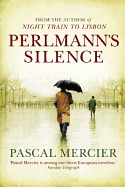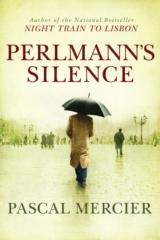

Perlmann tries to lose himself translating a Russian linguistic text sent by Vassily Leskov, the one specialist who can't attend the symposium, a formerly jailed Russian dissident who is not allowed an exit permit. To Perlmann's amazement and delight, his determination pays off, and the Russian language opens up to him. Meanwhile, the seminar members deliver their talks and grill each other with questions; alliances are forged, enmities sparked and quiet vendettas unleashed. It's the academic jungle, where pointing out a colleague's mistake is a blood sport and can be devastating.
Perlmann miserably calculates how many days remain before he must deliver the paper he has yet to write. As the competitive antagonism of his academic colleagues corners him into a panic, Perlmann finally admits to himself a hideous temptation--the Russian text he's been merrily testing his translation skills on would make a perfect paper. He succumbs, and passes off Leskov's work as his own. The next day he receives word that the Russian linguist has managed to get a visa, after all, and will be joining them. Horrified, trapped, his plagiarism about to be exposed, his reputation ruined, Perlmann frantically begins to plan an "accident" for Leskov.
What could drive a good man to murder? Philosopher novelist Pascal Mercier has clearly given it some serious thought, and at that point his 600-page epic begins to seem less like The Magic Mountain and more like Crime and Punishment. Once Perlmann sets out on his disastrous, suicidal attempt to arrange the perfect murder, this stately glacier of a novel unexpectedly heats up and morphs into an out-and-out thriller, as the central character we've been sympathizing with for hundreds of pages tries to kill a man who genuinely likes him. It's harrowing, heartbreaking stuff, and author Mercier expertly ratchets up the suspense with lingering details in which every ticking second could spell exposure.
Mercier has a flair for vivid characterization, and has created a personality-rich tapestry of human interaction. As in his earlier novel, Night Train to Lisbon, Mercier's fondness and compassion for his characters grows steadily through the narrative, until by the book's end they have become multidimensional and almost mythic in impact. Mercier's tolerance for human foibles and his often humorous compassion make this doorstop of a book a hearty feast for the thinking reader, and the final stretches of the story into an utterly satisfying emotional rollercoaster. --Nick DiMartino
Shelf Talker: The frustrated keynote speaker at a linguistics conference in Italy plagiarizes a Russian colleague's paper--but when that colleague shows up, he's driven to attempt murder.

